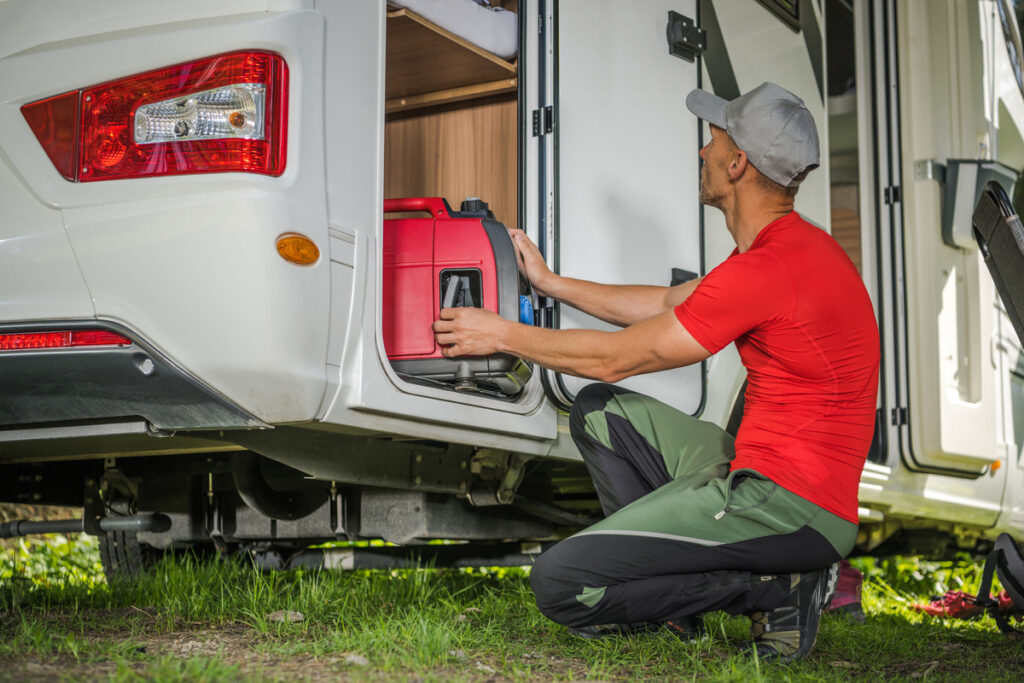Spring comes along and you’re ready for an epic RV adventure only to find that pests have decided that your home is now theirs. Don’t let those crafty critters crash your road trip! Let’s dive into the ultimate guide on how to keep those furry freeloaders out of your RV while it’s in storage.
Understanding Rodent Behavior
Rodents are the Houdinis of the animal world, squeezing through the tiniest of spaces to seek shelter and sustenance. They might end up in RV storage facilities because they provide ample hiding spots and leftovers from past trips. Before we can effectively rodent-proof our RV, it’s important to understand their behavior.
- Seeking shelter: Rodents crave warm and cozy spaces to build their nests, making your RV the perfect spot for them during colder months.
- Scavenging for food: Leftover crumbs and food scraps left in your RV can attract rodents looking for an easy meal.
- Chewing on anything: Rodents have a strong urge to gnaw on objects, which also helps them keep their teeth sharp. Unfortunately, this often leads to damaged wiring and insulation in RVs.
Rodents aren’t exactly picky houseguests—they’re drawn to the cozy warmth and the promise of a midnight snack hiding in your RV. From crumbs to open vents, they’ll find any excuse to make themselves at home in an RV storage facility.
Preparing Your RV for Storage Facilities
Proper prep work is the secret to keeping those pesky critters out during long-term RV storage. It doesn’t have to take you long but it’ll save you a world of trouble in the long run.
Thorough Cleaning Before Storage
Clean every nook and cranny, banishing any lingering crumbs or food residues. This means taking everything out of your fridge, pantry, and cabinets. In addition, wipe every surface down with a disinfectant to eliminate any potential food odors.
Securing Ventilation and Openings
Most RV storage facilities are open, meaning your RV is in the elements. Ventilation and openings can be a tempting entry point for rodents. To prevent this, start by examining your RV for any gaps or cracks, especially around pipes, doors, and windows.
These can be sealed with silicone or foam sealants. For larger openings, consider using a mesh screen or hardware cloth. It’s important to choose materials that are tough enough to withstand the gnawing of rodents.
Next, turn your attention to the vents. While they are necessary for proper ventilation, they can also act as a gateway for pests. Install vent covers or screens to block off these potential entrances. Remember to also check the exhaust pipe and air intake; these might require specially designed covers.
Lastly, if your RV is equipped with a slide-out, ensure that it is fully retracted and that the seals are intact. A faulty seal could invite not just rodents but also other pests and elements. Check for any signs of wear and tear and replace them if necessary.
Rodent-Repellent Techniques for RV Storage
Mother Nature has a few tricks up her sleeve to help you out. Rodents aren’t fans of scents like peppermint, citronella, rosemary, thyme and lavender, making these an effective natural repellent. You can buy essential oils in these scents, soak cotton balls in them and place them strategically around your RV.
Mothballs and cedar blocks are also great for deterring furry intruders.
Another popular method is using ultrasonic sound devices, which emit high-frequency sounds that rodents find irritating. These can be found at most hardware stores and are a non-toxic option for keeping pests away.
Storing Food and Supplies
Don’t leave any crumbs for the unwanted guests. Use airtight containers to keep all your supplies safe. Rodents could easily get into plastic bags or cardboard boxes, but they’ll have a tougher time with sealed containers.
Also, don’t forget about your vehicle fluids. Make sure all fluids are stored in a secure location, away from possible entry points for pests.
Regular Check-Ups
Even with all the preventive measures in place, it’s important to regularly check on your RV while it’s in storage. This will allow you to catch any potential issues early on and make necessary adjustments.
Inspect the exterior for any signs of gnawing or damage and repair them immediately. Check inside for any droppings or chewed wires, as these can be dangerous fire hazards.
First Step of RV Storage: Finding a Safe Place for Your Camper
One of the best things you can do to protect your RV from rodents is to choose a reputable and secure storage facility. Look for places that have pest control measures in place and regularly inspect their facilities. It’s also a good idea to ask about their procedures for preventing and handling rodent infestations.
At Good Shepherd RV Park, we understand the importance of keeping your RV safe and pest-free. Our storage facilities are well-maintained and regularly checked for any signs of pests. Contact us today to learn more about our storage options and how we can help you enjoy a stress-free camping season!



